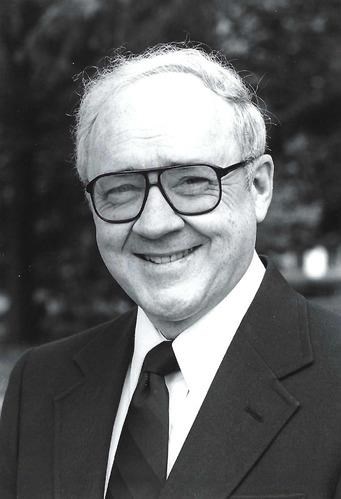An account is required to join the Society, renew annual memberships online, register for the Annual Meeting, and access the journals Practicing Anthropology and Human Organization
- Hello Guest!|Log In | Register
Art Gallaher 1925 - 2023
 On August 14, 2023, we lost a remarkable applied anthropologist. Art Gallaher, Jr., Ph.D., 98, died peacefully at his home in Lexington, Kentucky. He was chancellor emeritus of the Lexington Campus as well as professor emeritus of anthropology at the University of Kentucky.
On August 14, 2023, we lost a remarkable applied anthropologist. Art Gallaher, Jr., Ph.D., 98, died peacefully at his home in Lexington, Kentucky. He was chancellor emeritus of the Lexington Campus as well as professor emeritus of anthropology at the University of Kentucky.
Dr. Gallaher was born March 22, 1925, in Duncan, Oklahoma. He received his education in the Camargo and Anadarko, Oklahoma, public schools, at the University of Oklahoma (B.A. 1950, M.A. 1951) and at the University of Arizona (Ph.D. 1956).
Prior to his tenure at the University of Kentucky, Dr. Gallaher taught at the University of Houston (1956-1962) and Rice Institute (1961-1962), in Houston, Texas, and the University of Nebraska (1962-1963) in Lincoln. He came to the University of Kentucky in 1963 and advanced from associate to full professor (1963-1993). He also served as the acting and deputy director of the Center for Developmental Change, chair of the Department of Anthropology (1970-1972), dean of the College of Arts and Sciences (1972-1980), vice president for academic affairs (1981-1982), and chancellor (1982-1989). As chancellor he also taught one or more courses in anthropology.
Beyond his university work, Art also taught, consulted, and advised in both the public and private sectors. He worked with the Southern Regional Council during the 1950s in Houston, Texas, taught at the Air Command and Staff College at Maxwell Air Force Base, Alabama, and was a Weatherhead Scholar and consultant at the School for American Research (SAR), Santa Fe, New Mexico (now the School for Advanced Research).
Art's publications include Plainville, 15 Years Later, Columbia University Press (1961), Perspectives in Development Change, University Press of Kentucky (1968), and The Dying Community, with Harlan Padfield, SAR Press (1980), as well as numerous articles.
Several impactful programs were implemented at the University of Kentucky while Art was chancellor. He was particularly proud of the selective admissions policy he championed, which was introduced in 1983. As noted by the University Senate Council in 1989: "He recognized the need for reform in undergraduate education and appointed and charged the special committee to assess the state of general studies at the University. This led to the development of the University Studies Program, a promising new approach to undergraduate education at the University.”
He understood the need for retaining and attracting quality faculty and for stimulating quality research. The University of Kentucky, including the contributions made by the Lexington Campus, was recognized in 1988 by the Carnegie Foundation as a research university of the first class.
As chancellor, he was accessible to faculty and was a willing listener. He was firmly dedicated to the institution and the fulfillment of its goals. He implemented programs that enhanced the academic life of the university.
As a cultural and applied anthropologist, Art's research interests were many. Translated into application, they included short-term processes of cultural change; change agentry and intervention models in economic development; complex social organizations, especially bureaucracy and corporate cultures, higher education, and the dissolution of nation-state constructs; and sociocultural integration of communities at risk and those undergoing rapid change. The populations with whom he worked included the Seminole Freedman in Oklahoma; African Americans in 1950s Houston; and socioeconomically marginal farm populations in the U.S. and western Ireland.
Art served on many boards and was honored with professional awards several times during his long career. He was named a University of Arizona Distinguished Centennial Alumnus in 1989 and received the American Anthropological Association Presidential Award in 1993. Art was the first recipient of the Society for Applied Anthropology’s Sol Tax Award in 2002. He was a president and Fellow of both the Society for Applied Anthropology and the American Anthropological Association; a president and honorary lifetime board member of the Witter Bynner Poetry Foundation; and an Honorary Fellow of the School for American Research.
A man of remarkable intellectual capacity, great wit, and humor, Art was also an unpretentious egalitarian who treated everyone with dignity and respect. His friendships included peasants, farmers and shopkeepers, students and academicians, business leaders and philanthropists, writers, poets and artists, social and political activists, ambassadors and heads of state. He was as comfortable picking up a hitchhiker and spending the day with him as he was sharing dinner with a prime minister. Art was, not surprisingly, a progressive liberal and social-justice advocate who supported, among others, the American Civil Liberties Union and the Southern Poverty Law Center.
He is survived by Dixie, his wife and partner of 73 years, their two children, and six grandchildren.

Cart
Search